Garage rock is a raw and energetic style of rock and roll that flourished in the mid-1960s, most notably in the United States and Canada, and has experienced a series of subsequent revivals. The style is characterized by basic chord structures played on electric guitars and other instruments, sometimes distorted through a fuzzbox, as well as often unsophisticated and occasionally aggressive lyrics and delivery. Its name derives from the perception that groups were often made up of young amateurs who rehearsed in the family garage, although many were professional.
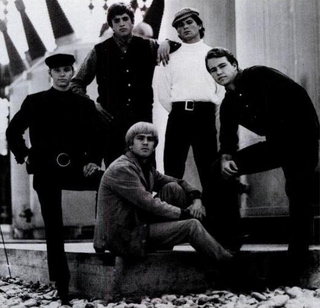
The Electric Prunes are an American psychedelic rock band, formed in Los Angeles, California, in 1965. Much of the band's music was, as music historian Richie Unterberger described it, possessed of "an eerie and sometimes anguished ambiance." Their most successful material was by songwriters Annette Tucker and Nancie Mantz, though the group also penned their own songs. Incorporating psychedelia and elements of embryonic electronic rock, the band's sound was marked by innovative recording techniques with fuzz-toned guitars and oscillating sound effects. In addition, guitarist Ken Williams' and singer James Lowe's concept of "free-form garage music" provided the band with a richer sonic palette and exploratory lyrical structure than many of their contemporaries.

The Shadows of Knight were an American rock band from Chicago, Illinois, that played a version of British blues influenced by their native city. When they began recording in 1965, the band's self-description was "the Stones, Animals and the Yardbirds took the Chicago blues and gave it an English interpretation. We've taken the English version of the Blues and re-added a Chicago touch," to which rock critic Richie Unterberger commented: "The Shadows of Knight's self-description was fairly accurate."

Having a Rave Up with the Yardbirds, or simply Having a Rave Up, is the second American album by English rock group the Yardbirds. It was released in November 1965, eight months after Jeff Beck replaced Eric Clapton on guitar. It includes songs with both guitarists and reflects the group's blues rock roots and their early experimentations with psychedelic and hard rock. The title refers to the driving "rave up" arrangement the band used in several of their songs.

The Music Machine was an American rock band formed in Los Angeles, California in 1966. Fronted by chief songwriter and lead vocalist Sean Bonniwell, the band cultivated a characteristically dark and rebellious image reflected in an untamed musical approach. Sometimes it made use of distorted guitar lines and hallucinogenic organ parts, punctuated by Bonniwell's distinctively throaty vocals. Although they managed to attain national chart success only briefly with two singles, the Music Machine is today considered by many critics to be one of the groundbreaking acts of the 1960s. Their style is now recognized as a pioneering force in proto-punk; yet within a relatively short period of time, they began to employ more complex lyrical and instrumental arrangements that went beyond the typical garage band format.

Got Live If You Want It! is a six-song extended play (EP) release by the Rolling Stones featuring live recordings from 1965. The title is a pun on the swamp blues song "I Got Love If You Want It" by Slim Harpo; the Stones recorded his "I'm a King Bee" for their 1964 debut album. Got Live If You Want It! reached number one in the UK and was the group's last EP.

"I Wish You Would" is a song recorded by Chicago blues musician Billy Boy Arnold in 1955. It was developed while Arnold was performing with Bo Diddley and incorporates a Diddley-style rhythm. Called "a timeless Chicago blues classic", "I Wish You Would" is Arnold's best-known song and has been recorded by several artists, including the Yardbirds, who recorded it for their debut single in 1964.
The Vejtables were an American rock band from Millbrae, California, United States. They recorded for the Autumn label and found limited success with such songs as "I Still Love You" and a cover version of Tom Paxton's "The Last Thing on My Mind".

"Bo Diddley" is a song by American rock and roll pioneer Bo Diddley. It introduced the rhythm that became known as the Bo Diddley beat and topped the Billboard R&B chart for two weeks in 1955. The song is included on many of Diddley's compilation albums including Bo Diddley (1958) and His Best (1997). Buddy Holly recorded a version that became his highest-charting single in the UK.

"Who Do You Love?" is a song written by American rock and roll pioneer Bo Diddley. Recorded in 1956, it is one of his most popular and enduring works. The song represents one of Bo Diddley's strongest lyrical efforts and uses a combination of hoodoo-type imagery and boasting. It is an upbeat rocker, but the original did not use the signature Bo Diddley beat rhythm.

Glenn Ross Campbell is a steel guitarist, most noted for being lead guitarist of cult band The Misunderstood.
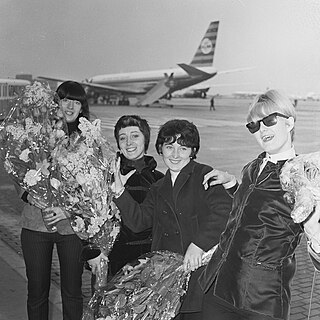
The Liverbirds were an English all-female rock band from Liverpool, active between 1963 and 1968. The group consisted of vocalist and guitarist Valerie Gell, guitarist and vocalist Pamela Birch, bassist and vocalist Mary McGlory, and drummer Sylvia Saunders. They were one of the very few female bands on the Merseybeat scene, as well as one of the first all-female rock and roll bands in the world. They took their name from the fictional liver bird, which is the symbol of their native Liverpool. They were mostly a cover band, except for three of their songs being written by Pamela Birch.
Not to be confused with Styx (band)

"You Can't Judge a Book by the Cover" is a 1962 song by rock and roll pioneer Bo Diddley. Written by Willie Dixon, the song was one of Diddley's last record chart hits. Unlike many of his well-known songs, "You Can't Judge a Book by the Cover" does not rely on the Bo Diddley beat. A variety of rock and other performers have recorded renditions of the song.

"Get Me to the World on Time" is a song written by Annette Tucker and Jill Jones for the American garage rock band, The Electric Prunes. The song was released in May 1967 following the success of the band's previous single, "I Had Too Much to Dream ". Although the follow-up did not have the same success, "Get Me to the World on Time" still charted at number 27 on the Billboard Hot 100. The single also fared slightly better in the UK, where it reached number 42.

The Bonniwell Music Machine is the second and final album by the American garage rock band, The Music Machine, recorded under the renamed moniker, The Bonniwell Music Machine, and released on Warner Bros. Records, on February 10, 1968. As with their debut LP, the album again saw the band blending garage and psychedelic rock influences, albeit with a greater emphasis on psychedelia than on their previous album release. Prior to completing its recording, all of the group's original members, except for its creative force, Sean Bonniwell, departed, though they would still appear on some of the album's tracks.
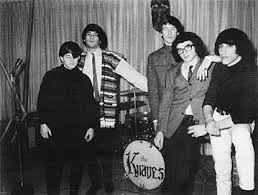
The Knaves were an American garage rock band formed in Chicago, Illinois, in 1964. The band released two singles during their existence, including the song "Leave Me Alone", which is now considered a classic of the musical genre of garage rock. In addition, the group's sound was particularly unique for combining elements of folk rock and proto-punk, making the Knaves stand out among their contemporaries.
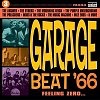
Garage Beat '66 Volume 3: Feeling Zero... is a compilation album featuring rare material recorded by American psychedelic and garage rock bands that were active in the 1960s. The album's contents are sourced from the original master tapes. It is the third installment of the Garage Beat '66 series and was released on April 27, 2004, on Sundazed Records.
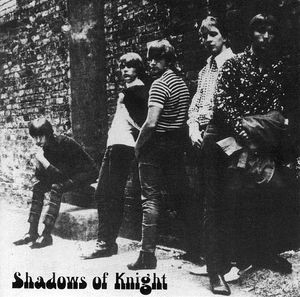
Raw 'n' Alive at the Cellar, Chicago 1966! is a live album by the American garage rock band the Shadows of Knight, and was released on Sundazed Records in 1992. The album consists of recordings from the band's appearance at the Cellar in Arlington Heights, Illinois in December 1966. Although the tapes were never anticipated to be released publicly, Raw 'n' Alive at the Cellar is commended for its good sound quality, and represents one of the better live concert recordings to emerge from the garage rock era.
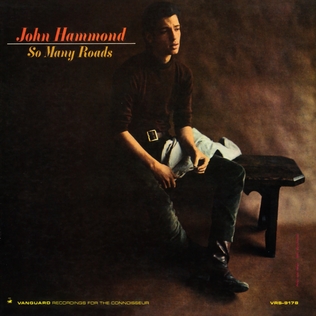
So Many Roads is a 1965 studio album by John P. Hammond, backed by several musicians who would go on to form The Band.

















